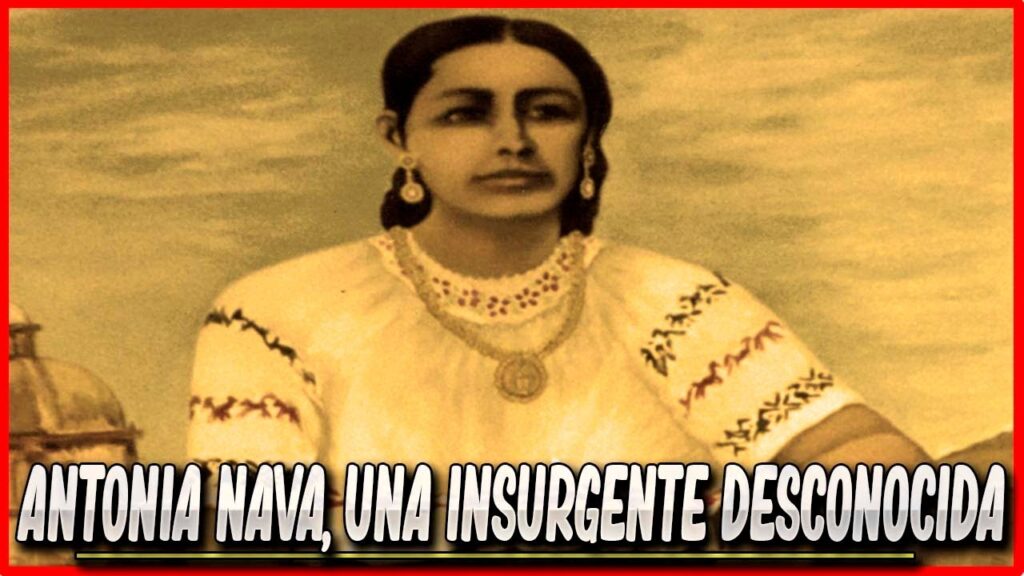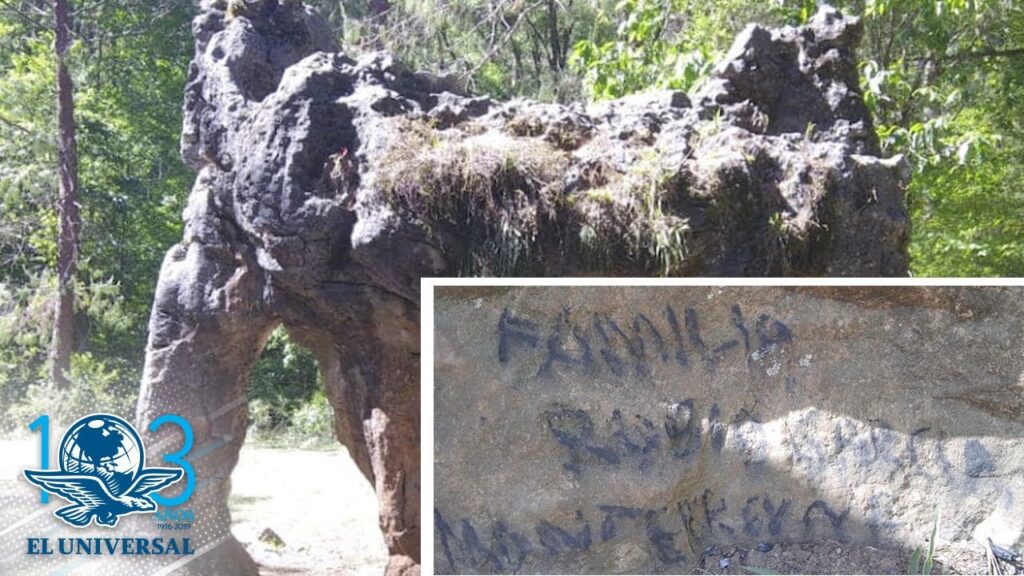The Unsung Heroine of Mexican Independence: Antonia Nava
While many have heard of the valiant heroes of the Mexican War of Independence, the name Antonia Nava de Catalán does not often ring with the same familiarity. Yet, this resolute woman played an indispensable role during one of the country’s most turbulent times. Born in 1779 in the state of Guerrero, Antonia Nava would go on to defy the gender norms of her era by actively participating in the struggle for Mexico’s freedom from Spanish rule.
Amid the early 1800s, Antonia became known for her unwavering support for the insurgent movement. Her collaboration went far beyond the domestic sphere traditionally assigned to women of her time; she was a logistician, a strategist, and a passionate promoter of the cause. The widow of a militia captain, Nava didn’t allow her personal tragedies to overshadow her commitment to the fight for independence. Instead, she drew strength from these hardships, garnering respect and admiration from her contemporaries.
Her bravery extended to the battlefield itself, where she earned the nickname “La Generala.” Nava didn’t hesitate to take up arms alongside men, after training her children and local community members in the art of warfare. She was instrumental in supplying food, ammunition, and information to the insurgents, proving to be as formidable in logistics as she was in spirit. It was her dedication and tactical acumen that contributed to several key victories during the war.
Antonia Nava’s involvement with the independence movement was also personal. Her four sons and two daughters were intimately woven into the fabric of the insurgency, with each playing critical roles in various capacities. It was a family bound not only by blood but by a collective yearning for national sovereignty. Their ancestral home became a nexus for planning and refuge, a silent testament to their unshakable dedication to the cause.
Despite her monumental contributions, Antonia Nava’s story is often overshadowed in historical discourse. Few monuments bear her name, and her deeds exist quietly in the annals of Mexico’s past. However, the legacy of “La Generala” persists in the spirit of those who continue to recognize and honor the vital roles women have played in shaping the course of history. Antonia Nava remains a beacon of patriotic fervor and an enduring symbol of the often uncelebrated female figures who have helped forge nations.
Antonia Nava: The Forgotten Insurgent Who Fought for Freedom
Amidst the echoes of cannon fire and cries for liberty that define the Mexican War of Independence, the name Antonia Nava de Catalán remains, for many, an obscured figure in the historical narrative. Yet, her extraordinary exploits as a key insurgent leader warrant a revered place in Mexico’s storied past. Often overshadowed by the likes of other revolutionary heroes, Nava’s unyielding spirit and dedication to the cause of freedom showcases the integral role of women in the fight against Spanish colonial rule.
Antonia Nava’s journey into the annals of rebellion began alongside her husband, Captain Jose Maria Nava, who actively participated in the early insurgent movements. As tumultuous waves of conflict swept across the land, Antonia’s engagement evolved far beyond the traditional confines of a supportive spouse. With an unassailable courage, she spearheaded logistical operations, managing the supply of vital resources for the insurgent army, all the while evading the vigilant eyes of colonial authorities.
The depth of Nava’s commitment to Mexican independence was made most evident following the capture and execution of her husband in 1811. Though engulfed in personal mourning, she persisted unwaveringly in her revolutionary endeavors. Leveraging her keen intellect and social acumen, Antonia established a clandestine network of informants and supporters that played a crucial role in sustaining the insurgency. Her home became a hub for strategic planning, fostering the seeds of liberty that would eventually bear fruit with the consummation of independence.
Despite enduring the horrors of war, including the imprisonment and loss of her sons to the cause, Antonia Nava’s resolve never faltered. Her indomitable spirit laid the groundwork for future generations of Mexican women to step into the fore of political and social change. It is the unsung valor of individuals like Antonia Nava de Catalán that galvanizes the tapestry of Mexico’s fight for freedom, reminding us that the willingness to act in the face of insurmountable odds is the true hallmark of heroism.
Exploring the Legacy of Antonia Nava in Mexico’s Fight for Independence
Antonia Nava, widely recognized as La Generala, is a figure shrouded in the mists of Mexico’s storied past. While names like Hidalgo and Morelos dominate narratives of Mexican Independence, the contributions of powerful women like Nava have been no less significant. Born in the turbulent era of Spanish colonialism, Nava’s early life prepared her for the pivotal role she would play in the emancipation of her country. Despite the social constraints of her time, she emerged as a symbol of unwavering strength and tenacity in the face of adversity.
During the peak of the insurgency, when the call to arms swept through the towns and reached the hearts of the disenchanted, Antonia Nava stood firm with her convictions. Beyond her contributions as a fervent supporter of the cause, she provided invaluable logistical support to the rebel forces. Her homestead became a haven for strategic planning and refuge for those fighters wearied by battle. Her ability to maintain the flow of essential resources such as food and ammunition helped sustain the momentum of the independence movement.
Nava’s courage was particularly evident in her active participation in some of the most grueling conflicts of the war. Shedding the traditional role expected of women at the time, she enlisted in the army and fought alongside her male compatriots. Her bold disposition earned her respect and recognition, not merely as a supporter, but as a comrade-in-arms. Her valor in combat was so esteemed that she obtained the rank of General, an honor which was nearly inconceivable for a woman of that period in history.
The impact of Antonia Nava’s endeavors went beyond the battlefield. She was a keen propagandist and a unifying voice among the ranks of the insurgents. Her persuasive eloquence rallied many to the cause, including those who had remained skeptical of the revolt. Following the successful culmination of the war, her legacy continued to inspire the women of Mexico, enlightening future generations to the potent potential of their resolve and capability in nation-building.
Today, Antonia Nava’s legacy is celebrated as an integral part of Mexico’s rich tapestry of heroes who fought for freedom. Her exceptional life story demonstrates that the struggle for independence was multifaceted, involving contributions from all sectors of society, including formidable women who shattered the shackles of their conventional roles. As history books continue to evolve and give more space to the unsung heroes of Mexico’s independence, the story of La Generala undoubtedly takes its rightful place among the venerated chronicles of those who forged a nation.
Antonia Nava: Unearthing the Story of a Hidden Revolutionary
In the tapestry of Mexico’s fight for independence, heroes are stitched into the nation’s proud history. Yet, the tales of countless others have faded into the shadows, unsung and barely recognized. One such individual is Antonia Nava, a name scarcely referenced in history textbooks or celebrated during patriotic holidays. But her contributions to Mexico’s struggle for sovereignty were no less significant than those of her male counterparts. By bringing her story to light, we begin to uncover the layers of a forgotten chapter in the narrative of Mexico’s revolutionary past.
Little is known of Antonia Nava’s early life, yet we do know she was born in the state of Guerrero. As the winds of change began to stir, Antonia, a woman of indigenous descent, became actively involved in the insurgent movement against Spanish colonial rule. Her role went beyond the traditional expectations of women of her time. Antonia’s actions showed a deep conviction for the cause, revealing her bravery and strategic acumen in a society that seldom allowed women to venture into the political arena.
What distinguishes Antonia Nava is her pivotal participation in the insurgency alongside her husband, Julian Ávila, and her sons. Together, they formed a family firmly bound by the ideals of freedom and self-determination. Antonia’s house served as a meeting place for revolutionaries, a safe harbor for planning and respite. Her support was not just moral or logistical; records tell of how she and her family fought in battles and skirmishes, an image that defies the typical narrative of women’s roles in warfare during that period.
This exceptional woman also displayed extraordinary resilience in the face of personal tragedy. After losing her husband and four sons to the revolution, Antonia continued to fight with unyielding spirit. Her strength served as an inspiration to others and sustained her remaining family members through the periods of greatest hardship. It’s these personal sacrifices that elevate her story from one of mere participation to one of profound dedication and immense personal loss for the larger cause of freedom.
Despite her fierce devotion and significant sacrifices, Antonia Nava’s legacy is barely a whisper in the annals of revolutionary history. As we delve into these overlooked historical narratives, we not only pay homage to undervalued figures like Nava but also enrich our understanding of Mexico’s complex fight for independence. Antonia Nava’s life and legacy serve as stark reminders of the countless uncelebrated heroes whose actions have shaped the history of nations. It’s time that their stories are told and their contributions duly recognized, stitching them back into the fabric of our shared heritage.
The Valiant Struggle of Antonia Nava in Mexico’s Pursuit of Independence
Antonia Nava, often referred to as “La Generala,” played a pivotal role in the Mexican War of Independence. Born into a family with strong insurgent sympathies, Nava did not simply offer moral support; she actively involved herself in the logistical efforts that were crucial to sustaining the revolutionary forces. Nava’s courageous actions involved hiding important leaders of the movement, including her own sons and husband, and at times even leveraging her own safety by transporting arms and messages past enemy lines. Her resilience and determination underlined the power and contribution of women in the fight for Mexico’s emancipation.
Nava’s commitment to the cause was not merely a background endeavor—it was a front-line fight against oppression. In a period when women were often relegated to the roles of caretakers, Nava pushed boundaries and became an iconic figure of leadership. Despite facing the loss of her property and the constant threat to her family’s safety, she embraced the struggle with steadfast resolve. Her efforts provided not only essential supplies but also much-needed inspiration for fellow revolutionaries at a time when morale was critical to the ongoing battle for independence.
The influence of Antonia Nava’s efforts extended beyond the battlefield and into the political sphere. She was instrumental in organizing local support groups that not only facilitated the insurgency’s supply chain but also strengthened the communal bond among those fighting for the same cause. Her ability to galvanize and lead her contemporaries showcased an aspect of the Mexican War of Independence that is often overlooked: the integral role that women played in the relentless pursuit of liberty. Nava’s valiant struggle was a testament to the unwavering spirit of the Mexican people and their thirst for sovereignty and self-determination.



